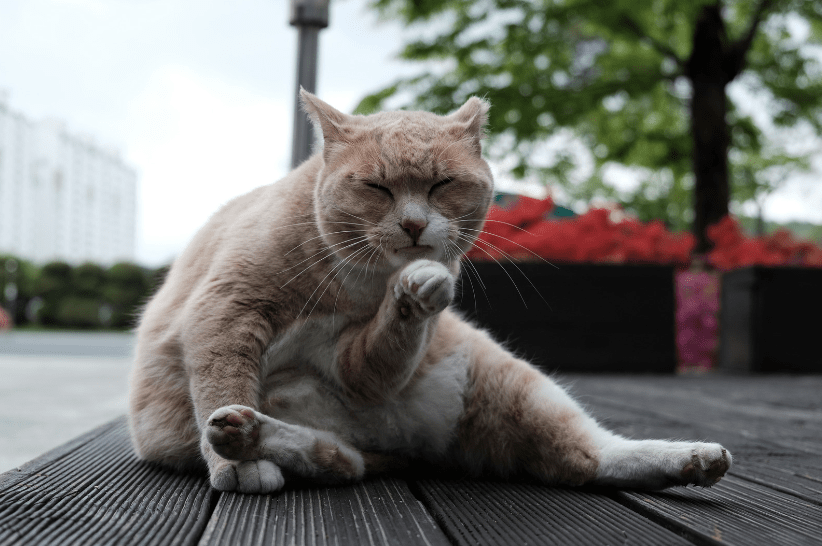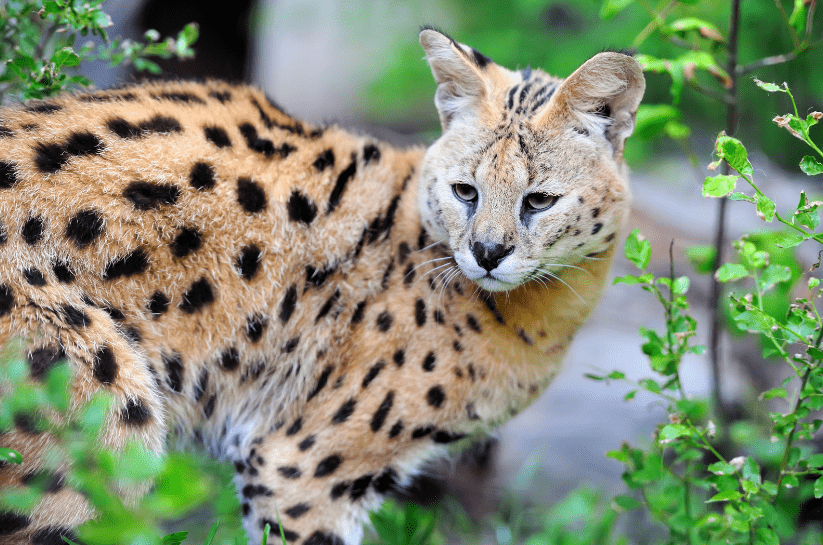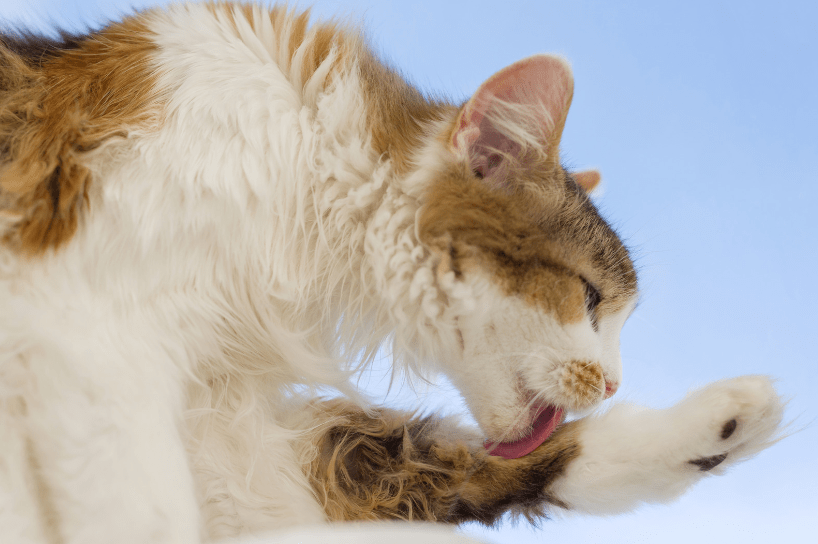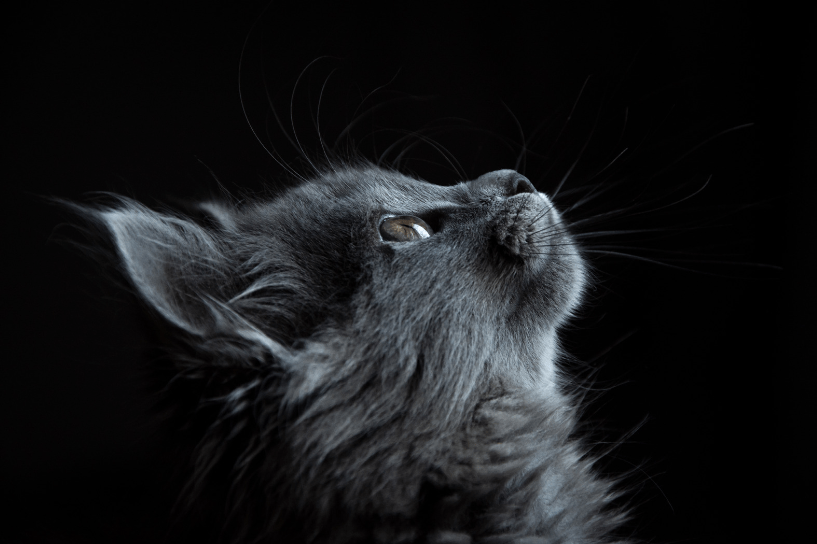Yes, a Serval cat is capable of killing a human.
Can a Serval Cat Kill a Human: Understanding Serval Cats
Exotic feline species hailing from the African continent, serval cats are wild and captivating. They have unique physical characteristics, exhibit natural hunting behavior, and occasionally interact with humans. In this section, we will explore the various aspects of serval cats, including their physical characteristics, natural habitat, hunting behavior, and interaction with humans.
Physical Characteristics Of Serval Cats
Servant cats possess distinct physical characteristics that make them stand out among other feline species. Here are some key features of their appearance:
- They have a slender and long body, with males weighing around 20-40 pounds and females usually weighing slightly less.
- Their fur is short, thick, and typically golden-yellow with black spots, providing excellent camouflage in their natural habitat.
- Serval cats have long legs compared to their body size, enabling them to jump high and cover long distances in pursuit of prey.
- These cats have large rounded ears, which are highly sensitive and allow them to detect even the slightest sound, aiding in their hunting abilities.
Can a Serval Cat Kill a Human: Natural Habitat And Hunting Behavior
Thriving in the expansive grassy savannas and lush wetlands throughout Africa, serval cats predominantly inhabit these regions. They have adapted well to these habitats due to their hunting behavior. Here are some notable aspects of their natural habitat and hunting behavior:
- They are proficient hunters, primarily targeting small mammals like rodents, birds, and frogs.
- Serval cats can leap high into the air, thanks to their powerful hind legs, allowing them to catch birds in mid-flight.
- Their long necks and sharp teeth enable them to snatch their prey swiftly.
- They possess excellent night vision, which aids in their hunting success as they are primarily nocturnal creatures.
- Serval cats have well-developed hearing that helps them locate their prey, even underground, through sound vibrations.
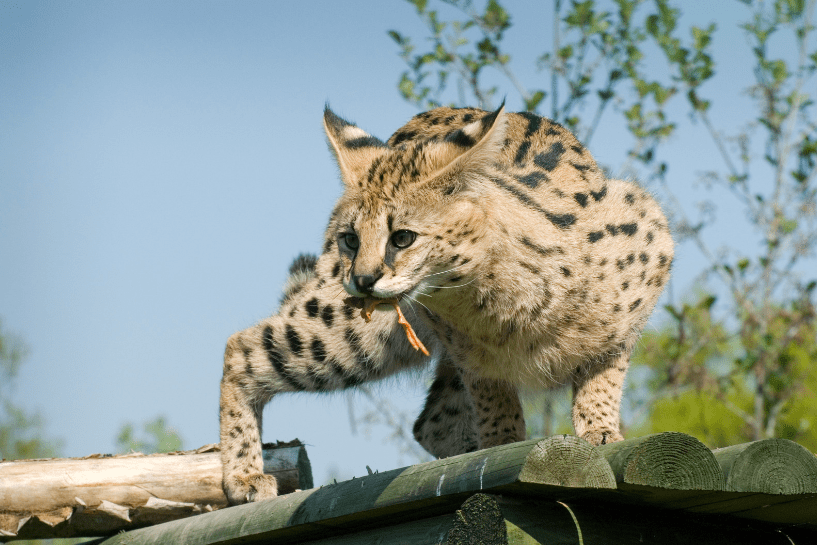
Interaction With Humans
While serval cats are typically wild animals, there have been instances of interaction between these cats and humans. It is important to note that these interactions should be approached with caution and respect. Here are some points to consider regarding the interaction of serval cats with humans:
- Serval cats, when kept as pets, may exhibit aggressive behavior towards humans due to their wild instincts. Therefore, they are not recommended as domestic pets.
- Their specialized dietary needs and enclosure requirements make it challenging to provide them with a suitable living environment outside of their natural habitat.
- While serval cats may not typically be aggressive towards humans, it is essential to ensure proper safety measures are in place when interacting with them.
The Potential Danger Of Serval Cats
With their unique appearance and untamed instincts, serval cats enthrall and captivate. They may appear harmless, but understanding the potential danger they can pose to humans is essential. In this section, we will examine human encounters with aggressive serval cats, explore factors that may trigger this aggressive behavior, and discuss the risks of keeping them as pets.
Instances Of Serval Cat Attacks On Humans
Although serval cats are not generally known to be aggressive towards humans, there have been documented cases of attacks on individuals. One such incident involved a toddler at a birthday party, where a serval cat attacked and caused severe injuries. It is crucial to recognize that when a serval’s wild instincts kick in, it can pose a significant threat to human safety.
Factors That May Lead To Aggressive Behavior
Various elements can influence the aggressive tendencies observed in serval cats. Firstly, their natural territorial instincts can lead them to become defensive when they feel threatened or cornered. Moreover, they can respond aggressively to any perceived threat to their territory or offspring. If they lack proper socialization or encounter unfamiliar or stressful environments, it can also contribute to the development of aggressive behavior in serval cats.
- Natural territorial instincts
- Perceived threats to territory or offspring
- Lack of socialization
- Unfamiliar or stressful environments
The Risk Of Keeping A Serval Cat As A Pet
While some individuals may find the idea of having a serval cat as a pet intriguing, it is crucial to consider the risks involved. Servants have specialized dietary needs and require a large and secure enclosure to mimic their natural habitat adequately. It is challenging to meet their physical and mental stimulation requirements in a domestic setting, often leading to frustration and aggressive behavior. Therefore, the risk of keeping a serval cat as a pet far outweighs the potential benefits.
Can a Serval Cat Kill a Human: Preventing Serval Cat Attacks
Magnificent and enchanting beings, indigenous to Africa, are the captivating creatures of the continent. While they may exhibit some domestic traits, it’s important to recognize that they are wild animals with specialized needs. Educating the public about serval cat behavior, legal regulations and restrictions on owning serval cats, and safe practices when encountering them can help prevent serval cat attacks.
Educating The Public About Serval Cat Behavior
When it comes to preventing serval cat attacks, education plays a crucial role. Understanding the behavior of these wild animals can help individuals make informed decisions about interacting with them. Key aspects of serval cat behavior that the public should be aware of include:
- Servants are territorial animals and may become defensive if they feel threatened.
- They have sharp teeth and claws that can cause serious injuries.
- They are highly agile and can jump to great heights, increasing the risk of unexpected encounters.
By raising awareness about these behaviors, individuals can be better prepared to avoid situations that could potentially lead to serval cat attacks.
Legal Regulations And Restrictions On Owning Serval Cats
In many countries and states, there are legal regulations and restrictions on owning serval cats. These regulations aim to ensure the safety of both humans and the animals themselves. Some key points to consider include:
| Country/State |
Regulations |
| United States |
Owning a serval cat may require a permit or license, varying by state. |
| Canada |
Many provinces have strict regulations prohibiting the ownership of serval cats as pets. |
| Europe |
Some countries have banned the private ownership of serval cats altogether. |
It is crucial to research and comply with local laws and regulations before considering owning a serval cat. This helps protect both the general public and the well-being of these wild animals.
Safe Practices When Encountering A Serval Cat
If you find yourself in a situation where you encounter a serval cat, it is important to follow safe practices to minimize the risk of an attack. Some recommendations for ensuring your safety include:
- Do not approach or attempt to touch the serval cat.
- Maintain a safe distance and allow the animal to move freely in its environment.
- Keep children and pets away from serval cats at all times.
- If you encounter a serval cat in a residential area, contact local authorities or animal control to ensure proper handling.
Remember, no matter how alluring these animals may seem, they are wild and should be treated with caution and respect.
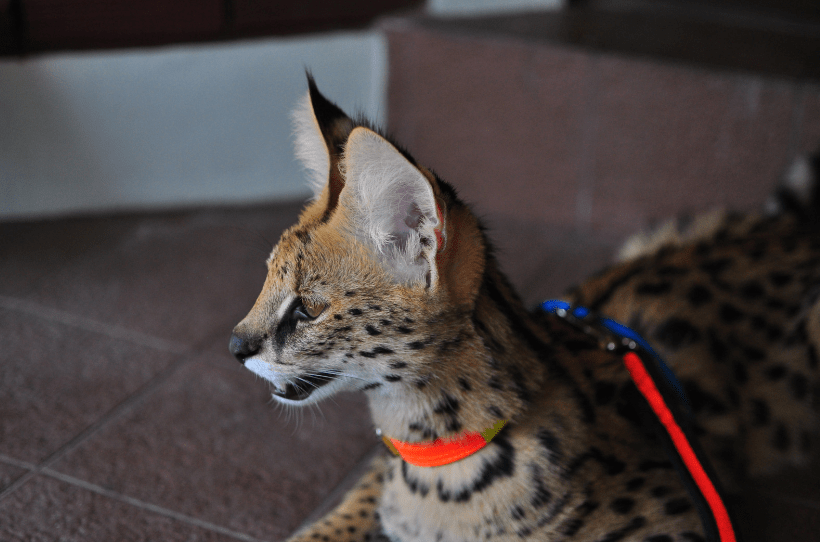
Alternatives To Owning A Serval Cat
Considering the potential dangers of owning a Serval cat, it is crucial to explore alternatives. Servals don’t make good pets due to their wild instincts, dietary needs, and enclosure requirements. It is best to opt for safer options that are more suitable for domestic life.
If you’re fascinated by the beauty and grace of serval cats but are considering alternatives to owning one as a pet, there are several options to explore. Responsible pet ownership extends beyond just considering the safety of humans, and it’s crucial to understand the potential risks and challenges associated with exotic pets like serval cats.
Responsible Pet Ownership Considerations
Responsible pet ownership involves prioritizing the animal’s welfare, the safety of others, and adherence to legal regulations. Alternative pets that can provide a similar sense of excitement and companionship without the potential dangers of owning a serval cat include:
- Domestic cat breeds: Consider adopting a domestic breed that resembles the serval cat, such as the Bengal cat. Bengal cats have striking coat patterns, high energy levels, and playful personalities, making them a suitable alternative for those drawn to the serval’s exotic appearance.
- Hybrid cat breeds: Another option is hybrid cat breeds like the Savannah cat. Savannah cats are a cross between a domestic cat and a serval or other wildcat species, resulting in a beautiful feline with a sense of adventure.
- Other small exotic animals: If you’re interested in owning an exotic pet, consider researching smaller species like hedgehogs, sugar gliders, or reptiles. However, bear in mind that these animals also require specialized care and attention.
Supporting Conservation Efforts For Serval Cats In The Wild
While owning a serval cat as a pet may not be recommended due to the associated risks, there are opportunities to support conservation efforts for servals in the wild:
- Donate to reputable organizations: Numerous wildlife conservation organizations focus on protecting and preserving serval populations in their natural habitats. Consider making a financial contribution to these organizations to support their conservation efforts.
- Get involved in education and outreach programs: Participate in or volunteer for programs that aim to raise awareness about the importance of conserving wild species like serval cats. Educating others about the dangers of keeping wild animals as pets can help prevent illegal wildlife trade.
- Support habitat preservation: Encourage initiatives that protect and restore the habitats where serval cats reside. By conserving their natural surroundings, we can ensure a sustainable future for these magnificent creatures.
Remember, responsible pet ownership goes beyond personal desires. It’s about the well-being of the animals involved and the larger ecological impact. By exploring alternatives and supporting conservation efforts, we can appreciate the beauty of serval cats while prioritizing their welfare in the wild.
Conclusion
While serval cats are not typically aggressive towards humans, it is important to approach them with caution and respect. They are wild animals with instincts and specialized needs that make them unsuitable as pets. Keeping a serval as a pet can lead to a poor quality of life for the animal and potential danger for humans.
It is best to appreciate these captivating creatures from a distance and prioritize their well-being in their natural habitat.
